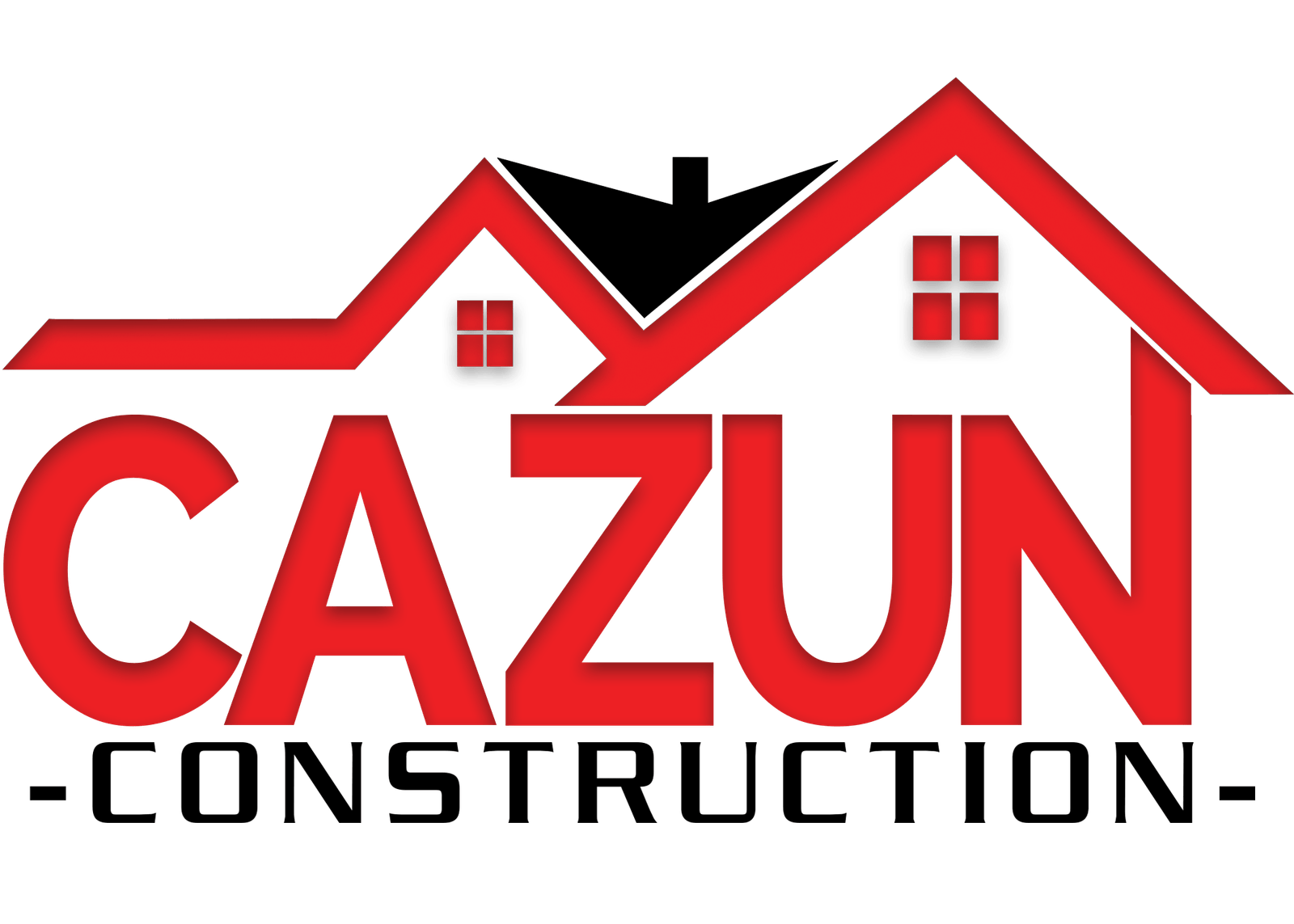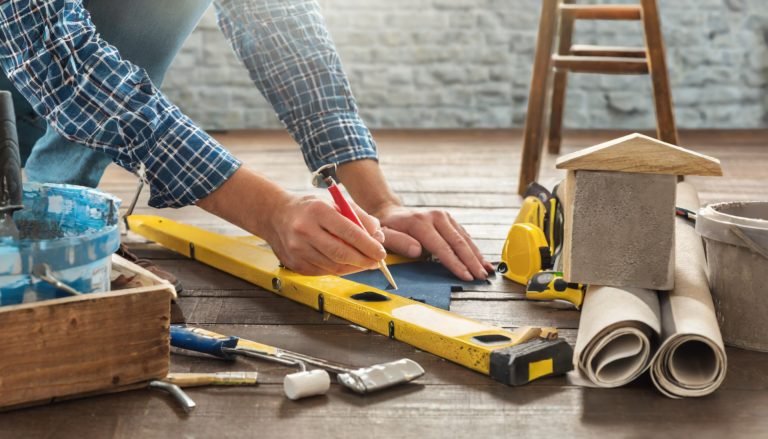If you’re in the planning or even dreaming phase of your next big home project, a few details probably come to mind: your budget, your timeline, and the contracting team that can make it happen. But finding the right person for the job is no small feat. Because it requires so much research and pre-planning, it can be overwhelming, intimidating, or just plain frustrating for anyone to face the task of hiring a contractor. This guide takes the guesswork out of this undertaking by providing step-by-step information on finding a contractor to make your home renovation dreams come true.
Know what you want before you hire a contractor.
As the client, you drive the process. Before you talk to contractors, spend time thinking about your goals for the project, such as what it could look like, the amenities you want, etc. If you don’t know how to translate your goals into specific features or products, hire a design consultant or design-build firm that can provide that service.
Finding good contractors.
- The first question to ask yourself is what type of project needs to be done. If it is a small, specific project, such as cabinetry, your best option would be with a contractor who specializes in what you need to be done. If it’s a medium-sized project and doesn’t involve any structural changes to your home, you probably just need a general contractor. If it’s a substantially large project, you’ll need an architect (and, in some cases, a licensed structural engineer) who can approve structural changes or a designer who specializes in doing what a contractor and architect do.
- When you’ve determined the type of contractor you need, it’s time to sit down and do some research. Ask friends and colleagues if anyone you know, and trust has any personal recommendations of contractors they have used. You can also ask any local realtors or local suppliers, as they often rub shoulders with contractors in their field. Searching for local contractors on the Internet is an easy way to get started if you can’t get any personal recommendations. Be sure to check to see if the contractors you are interested in have professional, up-to-date websites and if they have any ratings or reviews of them on the web. It’s a good idea to search their names with keywords such as “scam” or “scam” before determining that a contractor is right for you.
Establish Contact.
There is no definitive number of contractors you should call, but there are many horror stories of bad contractors. That’s why it’s important to establish a substantial list of 10 to 12 contractors to call based on your initial research. Your goal is to find 4 to 6 contractors during those phone calls that you feel good about and would like to meet with in person.
- During the conversation, focus on both the way they speak to you and their specific responses to your questions. Throughout the conversation, you’ll want to keep a few details in mind:
- Do they answer the phone professionally?
- Do they speak to you with respect?
- Do they listen to what you want to achieve or do they tell you what they think you should do?
- Do they seem interested and enthusiastic about your project?
- Do they answer your questions directly or turn you around?
- Have your list of questions in front of you along with a pen and paper to write down their answers and your impressions of your discussion. It’s important to write down what they say because your final decision can have a big impact on your financial future, and it’s hard for anyone to follow up with 10 to 12 candidates! There are some important questions you should be sure to ask:
- Are they licensed? Some states require licenses and some do not. You can check your state’s requirements and learn more about licensing here.
- Do you have insurance and, if so, what type of coverage do you have?
- Have they done work similar to yours before? Make sure you have a schematic and some important details of your project handy so you can answer this question as accurately as possible.
- Do they have a list of references you can contact? A good contractor should have many satisfied customers, as well as satisfied suppliers and subcontractors that you can call. And you have to call them.
- When will they be able to start the job? A good contractor is also very busy and you want to be sure they can fit into your schedule when you need the project completed.
- Will they provide you with a detailed contract once you have both agreed on the terms of the project?
- When you have finished calling all of the contractors on your list, select 4 through 6 who spoke with you professionally and respectfully, who provided satisfactory answers to all of your questions, and, if possible, who seemed excited to work with you. Finalize this list and call each of them.
Obtain quotes from various contractors.
- Plan to gather at least three quotes from several contractors before making a decision. More quotes (say five or six) will give you a clearer picture of how these companies compare to each other. Not only will you gain more perspective on the appropriate costs, but you’ll also get an idea of the caliber of work each contractor will provide. For example, one contractor may offer a bargain rate and marginal work; another’s high bid might indicate quality.
- Research a contractor’s work history and work habits.
Some contractors are specialists, while others are generalists, so make sure their skills are appropriate for your project. Take the time to see their work firsthand and look for three things: some similarities to your project, quality materials and workmanship, and consistent customer satisfaction. Also, keep track of small indicators that indicate professionalism or lack thereof. Are your phone calls returned promptly? Are appointments and meeting times kept? Do company vehicles or dress codes reflect pride and cleanliness? Neglect in these small matters may not bode well for the quality of the work. - Be aware of the details of the contract.
A contract should include start and completion dates, information on construction permits and applicable fees (usually handled by the contractor, but legally under the contractor’s responsibility), a description of the products and services to be provided by the contractor, payment terms, subcontractor issues (such as verification of licenses and insurance and labor warranty), and the consequences of default by either party. Noncompliance may include a contractor’s failure to pay subcontractors; the contract should exclude it from liability should that occur.
Meeting with selected contractors.
During the meeting, you will want to evaluate their interaction with you, as well as their specific responses to your questions. Scammers or contractors who are bad at their job may seem very friendly and pleasant before the actual work begins. Remember that you do NOT have to sign anything until you are satisfied with all of their answers to your questions, and you can walk away at any time.
Here are some important questions to ask during the meeting. Have a pen and paper ready to write down your answers, just as you did during the phone call:
- How long has your company been in business?
- What is your permanent business address? Don’t be alarmed if it is a residential address; a good number of contractors work from home.
- Are they licensed to work in your area? How long have they been licensed?
- Are they insured, what type of insurance do they have, and can they provide proof of insurance?
- Will your project require permits?
- How many projects like yours have they completed in the last year? This demonstrates their familiarity with your particular needs.
- Can they provide you with a quote and some price reasoning? Make sure that all contractors you meet with in person give you similar price quotes. If one gives you a much lower quote, it is most likely a scam or a guarantee of shoddy work.
- What are your payment schedules usually like and are you willing to be flexible?
- Are they willing to show you a project they are currently working on? If so, check their levels of organization and cleanliness and, if possible, ask the owner if they are satisfied so far with the contractor’s work.
- When you have finished meeting with all of the selected contractors, review your notes decide which contractors you would like to work with, and schedule a second meeting with them. This is your opportunity to ask any questions you didn’t think of the first time, to ask more specific questions related to your project and discuss your project at greater length with them, to request hard copies of licenses and insurance for your records, and to ask if they can provide you with a sample copy of a contract.
Finally, before making your final decision, contact the Better Business Bureau to check for consumer complaints. Keep in mind that sometimes even good contractors can receive complaints, so if your top choice has one, call them and ask how they resolved your customer’s problem. Was the complaint resolved quickly and professionally? Did the contractor finish the project with a satisfied customer?
Negotiate payment.
Once you have decided on a contractor, your next step is to negotiate price and payment. There won’t necessarily be much wiggle room on price, but you will need to negotiate a payment plan and a contingency budget.
There are no industry standards for specific payment plan amounts; each contractor will be different. However, there are two basic payment options, each with its attractions and drawbacks:
- Cost plus flat fee: The contractor will charge an agreed management and coordination fee (generally 13% to 20%) plus the actual cost of the project. The contract will state the estimated costs at each stage. This should closely match the total actual cost unless there are unforeseen circumstances, and it should be stated in your contract that your contractor will provide you with all receipts and accounting at regular intervals. This option allows a lot of flexibility, but it is much more difficult to estimate the final cost.
- Bid Basis: You and your contractor work out a budget for the entire project and agree on a payment schedule, all of which will be in your contract. If you have the budget, this is the most attractive option.
When you met with your selected list of contractors, you should have received similar price quotes from them. For example, if your kitchen remodel was quoted $12,000 from five of the six, then that’s what the project will cost. Remember that you have selected a professional who wants to get the project done quickly and with high quality, just like you. They need enough money for labor and materials to work with, but you should not give them an upfront payment for any work that has not yet been completed.
Every contractor is different and will have different expectations about the price of the down payment. Some states have laws that limit the amount of money the contractor can request for the down payment, as well as limits for the final payment beyond the agreed-upon amount, so do some research for your particular state. A good idea for your payments is to make them contingent on timely and quality completion according to the terms of your contract. That way, if there is a delay, you don’t have to pay until the particular service has been rendered.
Some things to remember about the payment method:
- NEVER pay cash. If your contractor asks you to pay cash, it is probably a scam.
- Smaller projects can be paid by check or credit card. Paying by credit card is recommended because you have more options for legal recourse if things go wrong with your contractor through your credit card company than through your bank.
- Larger projects may be financed. If you choose this option, make sure your contract indicates that the contract is void unless and until you are approved and obtain financing.
Make a contract.
- You mustn’t leave any details out when drafting a contract with your contractor. If something goes wrong during the project and you have to take legal action, your contract will be key to proving your case. These are the things your contract should set out in detail:
- Contact information for your contractor, such as name, physical address (you cannot serve a subpoena without a physical address), phone number, insurance company, and account and license numbers.
- The start date and end date of the project, or its start date and the time remaining to completion.
- Your payment plan and financing.
- A detailed schedule of project milestones, including electrical, HVAC, plumbing, and carpentry components.
- A detailed list of all materials required, who will choose them, and how much will be budgeted for them if they are chosen at a later date.
- A guarantee that the contractor will apply for all necessary permits.
- Possible time conflicts from other projects the contractor may be working on.
- Change order provisions. Sometimes unforeseen circumstances arise, such as dry rot, and this can change the project schedule and cost. The change order provisions state what additional work can be done, how much it will cost, and how it will affect the completion date. Some people also choose to include in this section what will happen if they change their mind about part of the project.
- All the names of the workers who will be on-site and the start and end times of their workday.
- Names of the companies to which your contractor will subcontract.
- Names of suppliers.
- All information about warranties and who will cover them.
- A “broom clause” that holds the contractor responsible for all cleanup, including unforeseen messes.
- A termination clause. A good termination clause should include detailed information on what factors may play a role in the termination of the project altogether and any costs or consequences of termination to the owner and contractor.
Get in touch with our Expert Guest Services Team
Alternatively, email us directly to assist you further.





